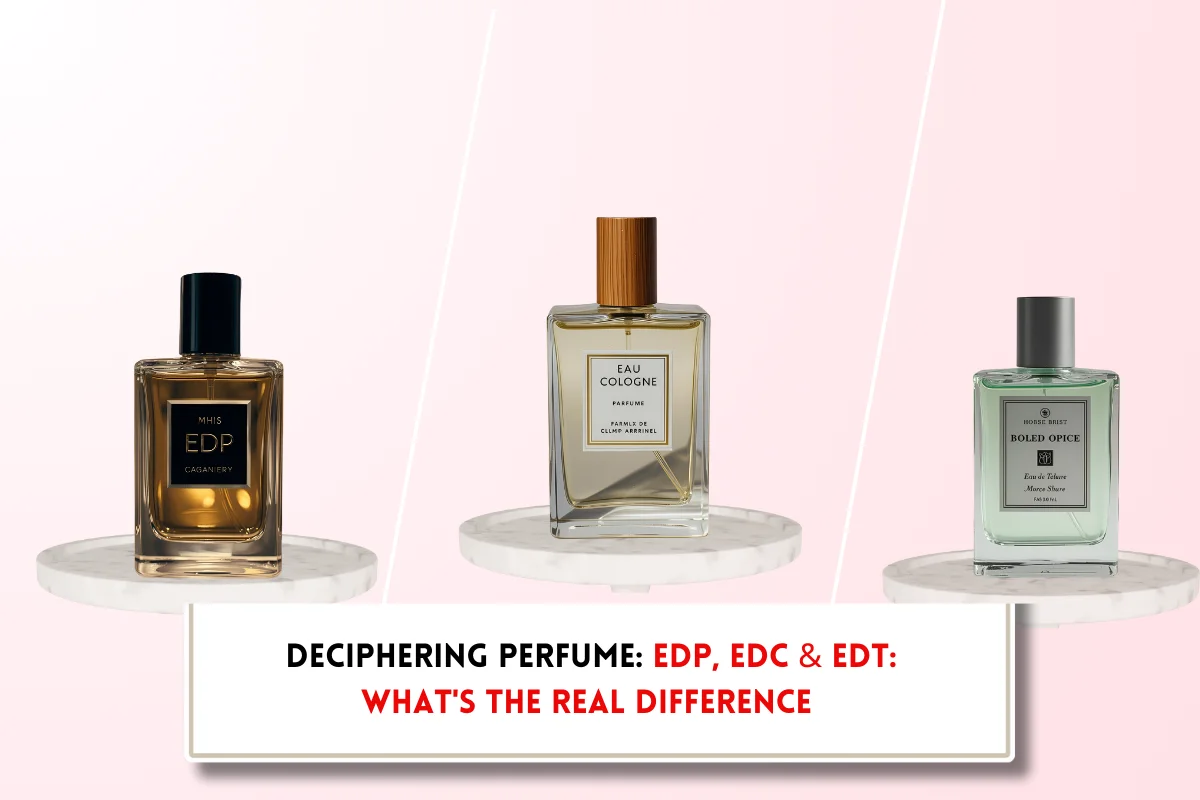Liquid shampoo vs shampoo bar- Are shampoo bars better than liquid shampoo?
At BeautyCaters, our expert team independently curates every recommended product. Purchases through our links may earn us a commission. Explore our transparent selection process.
The question tickled you, right?
As eco-consciousness takes center stage, and with availability of new alternatives, many are rethinking switch of the bottle of liquid shampoo to the shampoo bar. But are these bars truly better and superior for your hair to the familiar and traditional liquid kind? We’ve break down the key differences between of “Liquid shampoo vs shampoo bar ” in this article to help you decide which method best suits your mane and your values.
- What is a shampoo bar?
- Ingredients in shampoo bars
- Ingredients in Liquid Shampoo
- Shampoo Bars: Advantages and disadvantages
- Liquid shampoo: Advantages and disadvantages
- Shampoo bar vs liquid shampoo: A detailed comparison
- Why are shampoo bars better than liquid shampoo?
- FAQs about solid shampoo vs liquid shampoo
- Final Word: Liquid shampoo vs shampoo bar

What is a shampoo bar?
A shampoo bar is shampoo solidified and shaped into bar, made with minimal ingredients that are natural or organic.
Ingredients in shampoo bars
Unlike liquid shampoos often packaged in plastic and brimming with artificial additives, shampoo bars typically boast a simpler, more natural recipe. Common ingredients include gentle cleansers like sodium cocoyl isethionate and SLS-free surfactants, along with nourishing plant oils like coconut or argan.
Ingredients in Liquid Shampoo
Liquid shampoos often contain ingredients that can cause unintended consequences. Sulfates (SLS/SLES) remove dirt and buildup, but can be too harsh, stripping natural oils and causing dryness or irritation. Foaming agents (cocamidopropyl betaine) aren’t essential for cleansing, and some preservatives (parabens) raise concerns about hormones and allergies. Fragrances, while pleasant, may contain irritants, especially for sensitive individuals. Finally, conditioners with silicones or oils can provide temporary smoothness, but build up over time, weighing down hair.
Shampoo Bars: Advantages and disadvantages

Advantages
Shampoo bars are gaining serious traction as a replacement for traditional liquid shampoos. Here’s why
- Environmental sustainability: Shampoo bars prioritize eco-consciousness. Their minimal packaging often utilizes recyclable materials or eliminates plastic altogether, significantly reducing waste compared to traditional plastic bottles.
- Travel convenience: Their compact, solid form makes them ideal for travel. Shampoo bars fit perfectly in gym bags or carry-on luggage, eliminating the need to worry about airport security restrictions on liquids.
- Gentle on scalps: Many individuals struggle with sensitive scalps or allergies. Shampoo bars often boast fewer chemicals and additives, making them a gentler alternative that can minimize irritation. Natural and vegan options further contribute to a more environmentally friendly choice.
- Cost-effectiveness: While the upfront cost might appear higher, shampoo bars offer long-lasting benefits. Their concentrated formulas can equate to multiple bottles of liquid shampoo, translating to significant cost savings in the long run.
- Sustainable practices: By embracing shampoo bars, you actively contribute to a more sustainable future. Studies estimate that over 552 million plastic shampoo bottles are discarded annually. Switching to bars helps reduce this plastic influx into landfills and oceans.
- Enhanced cleansing: Formulated with concentrated ingredients, shampoo bars provide a more thorough cleanse. They effectively remove product buildup, excess oil, and impurities, leaving hair feeling refreshed and revitalized.
- Convenient application: Despite their solid form, shampoo bars offer a user-friendly experience. They lather well and distribute easily throughout the hair, ensuring a complete and satisfying wash.
Shampoo bars offer a professional-grade alternative to traditional liquid shampoos. Their focus on natural ingredients, reduced environmental impact, cost-effectiveness, and efficient cleansing capabilities make them a compelling choice for a healthy scalp, beautiful hair, and a greener planet.
Disadvantages:
Our research identified some potential roadblocks to wider shampoo bar adoption, despite their clear benefits:
- Lower Lather Factor: Many consumers associate a rich lather with effective cleansing. Traditional liquid shampoos often achieve this lather with harsh petrochemicals like sulfates. Natural alternatives in shampoo bars require reformulation to create a comparable lather experience.
- Dryness Concerns: Some consumers have experienced dryness in their hair and scalp after switching from liquid shampoos to shampoo bars. Liquid shampoos sometimes contain silicones and other chemicals that contribute to a temporary feeling of softness. While apple cider vinegar rinses can help with dryness, this can be seen as an inconvenient extra step.
Liquid shampoo: Advantages and disadvantages

Advantages
Liquid shampoos reign supreme in the hair care world for a reason. Here’s why they remain a popular choice:
- Convenience Reigns Supreme: The liquid format makes them incredibly easy to use and distribute throughout your hair.
- Lather Up for Satisfaction: Their ability to create a rich lather provides a satisfying and thorough cleansing experience.
- Targeted Solutions: Liquid shampoos come in countless variations, offering formulas for volumizing, moisturizing, color protection, and more. This variety allows you to choose a product specifically tailored to your hair type and needs.
- Quick Rinse, Clean Feel: The lightweight nature of liquid shampoos enables them to rinse out quickly, leaving your hair feeling fresh and clean with no residue.
- Instant Manageability: Many liquid shampoos contain conditioning agents that smooth hair cuticles and improve manageability. This translates to softer, silkier strands that are easier to style.
Disadvantages
While liquid shampoos offer convenience and variety, there are some potential downsides to consider:
- Harsh Chemicals: They often contain sulfates, which create that luxurious lather we love. However, these chemicals, along with parabens, can be derived from petroleum and fossil fuels.
- Environmental Impact: The extraction of these raw materials can be damaging to the environment.
- Skin and Hair Irritation: Some consumers experience adverse reactions to sulfates, parabens, and other harsh chemicals that can dry or irritate the hair and scalp.
- Unclear Ingredients: If you can’t decipher the ingredients list on a liquid shampoo bottle, it might be a sign the source of some ingredients is being obscured.
Shampoo bar vs liquid shampoo: A detailed comparison
If you want to dig a little deeper into shampoo bars vs liquid shampoos, former hairdresser Jayne outlines 3 key differences below.
Ingredients
Shampoo bars stand out for their kinder and gentler ingredients that are friendly top skin even sensitive skin. Shampoo bars contain ingredients that are natural and free of harsh chemicals like sulfates and detergents, animal products and even palm oil. This means they cleanse your hair without the risk of damage.
Most liquid shampoos, on the other hand, are often loaded with harsh chemicals like sulfates and detergents that can strip your hair’s natural oils, leaving it dry and brittle.
Packaging
Shampoo bars are a clear winner when it comes to environmental impact. They come in eco-friendly and zero-waste packaging like cardboard boxes, aluminum tins, or even coated paper.
Liquid shampoos come in single-use non-biodegradable plastic bottles. This plastic waste ends up in landfills or our oceans, harming wildlife for years.
Cost and longevity
Shampoo bars are surprisingly long-lasting, up to 3 times longer than a bottle (think 90 washes!). Even with daily washing, one bar could last 6 months! This is because they’re concentrated – a little goes a long way. This translates to long-term savings compared to liquid shampoos.
While liquid shampoos appear cheaper upfront, often require more product per wash, leading to more frequent repurchases and higher overall costs. Factor in their shorter shelf life due to water content, and shampoo bars become the clear winner for cost-effectiveness and reduced waste.
Convenience
Convenience can be a personal preference. Shampoo bars shine for on-the-go lifestyles. Their compact size makes them perfect for travel or gym bags. Plus, they’re easy to use – just lather the bar in your hands or directly on your hair.
However, liquid shampoos offer wider availability in formulations for specific hair types and concerns. They can also be easier to distribute throughout your hair, especially if you love a rich lather. The downside? Bulky bottles and potential leakage make them less travel-friendly.
Hair type
Shampoo bars, with their focus on natural ingredients, can be a godsend for those with sensitive scalps or allergies. Their gentle cleansing and minimal additives can leave your hair feeling healthier and less prone to irritation.
if you have specific hair needs, liquid shampoos might be a better fit. They come in a wider variety of formulas, from volumizing to hydrating to color-safe. Additionally, they often pack a stronger punch of conditioners, providing much-needed moisture or protection for specific hair types.
Related: Is volumizing shampoo bad for hair?
Why are shampoo bars better than liquid shampoo?
Shampoo bars are shaking up the hair care scene, and for good reason! Here’s why they might be a superior option to liquid shampoos:
- Concentrated Power: Forget fillers! Shampoo bars are packed with potent ingredients, minus the water found in liquid shampoos. This means a little goes a long way, and you avoid harsh chemicals like sulfates and parabens. Natural ingredients like essential oils nourish your hair and scalp, making them a high-quality, ultra-cleansing alternative.
- Multitasking Marvels: Don’t be fooled by the name! Shampoo bars can be surprisingly versatile. They can double as hand or body soap bars, and some adventurous souls even use them for laundry while traveling.
- Long-Lasting Lather: A single shampoo bar can go a long way! Their concentrated formula means a small amount delivers the same cleansing power as liquid shampoos. Studies suggest a bar can last for over 50 washes!
- Budget-Friendly Benefits: While the initial cost might seem higher, shampoo bars are a budget-friendly choice in the long run. Their extended lifespan and multiple uses translate to significant savings over time.
- Eco-Conscious Choice: Shampoo bars typically come in biodegradable packaging, reducing your plastic footprint and minimizing waste that ends up in landfills and oceans. Additionally, they are free of harsh chemicals that can pollute waterways, making them a more sustainable option.
FAQs about solid shampoo vs liquid shampoo
Are all liquid shampoos bad for your hair?
No, all liquid shampoos are not bad for hair. Gentler options containing natural ingredients also exist, but they can be a bit harder to find. Even most comes in refillable pouches and recyclable or biodegradable packaging, so you won’t contribute to plastic waste either.
Do shampoo bars have less chemicals?
Yes, shampoo bars have less chemicals. Shampoo bars typically take a minimalist approach compared to liquid shampoos. They often skip chemical additives and focus on natural ingredients, making them free of parabens, preservatives, sulfates, dyes, and other unnecessary extras.
Are shampoo bars hygienic?
Yes, shampoo bars boast a double win: eco-friendly and hygienic enough to share and use. They lack the water content of liquid shampoos, creating an inhospitable environment for bacteria to grow, if stored properly.
Final Word: Liquid shampoo vs shampoo bar
Now, after carefully examining the pros and cons of shampoo bars and liquid shampoos, I can confidently say that shampoo bars are a superior choice. Not only are they more environmentally friendly, as they typically come with less packaging and can last longer, but they also offer a more natural and gentle cleansing experience for your hair. Shampoo bars are also a practical option for those who travel frequently, as they are small and easy to carry. So, if you want to reduce your environmental footprint while maintaining healthy and nourished hair, I highly recommend making the switch to shampoo bars.










